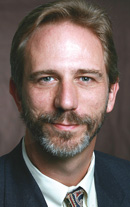Recently, I have had two conversations that reveal the incredible breadth of moral pluralism not just in America, but in the Christian population of America.
In one conversation, a young woman told me her family adheres to a very conservative Protestant tradition. One aspect of this tradition is an extreme form of the idea God set up a world where men are to rule and women are to serve.
 David GusheeIn her family, the father works outside the home, but inside the home, he is served by his women—a wife and daughter. After work, he comes in, sits down and puts up his feet. The nearest available woman literally takes off his boots and puts them away. He wants coffee. The nearest available woman makes him coffee. His women cook and serve and clean up after each of his meals. Every day. Every single day.
David GusheeIn her family, the father works outside the home, but inside the home, he is served by his women—a wife and daughter. After work, he comes in, sits down and puts up his feet. The nearest available woman literally takes off his boots and puts them away. He wants coffee. The nearest available woman makes him coffee. His women cook and serve and clean up after each of his meals. Every day. Every single day.
I gathered the wife is much more amenable to this scheme than is the daughter. But contemplate that couple for just a minute. It is 2015. The feminist movement has helped shape modern America. Two women are serious candidates for president of the United States. But here in this country is a woman who has chosen to practice a religion in which it is explicitly understood the man is superior and is to rule, the woman is inferior and is to serve. No one has required her to live such a lifestyle and to practice such a religion. But right now she—and many others—are doing just that voluntarily.
Second conversation. I had been lecturing on Christian sexual ethics to an audience of committed Christians. In the lecture, I ruled out the option of polyamory—maintaining multiple consensual sexual relationships—for Christians. I suggested it is outside the boundaries of a recognizably Christian sexual ethic, it never has been contemplated as an option in Christian history and there are were very good reasons to rule it out. I learned in a follow-up conversation the practice of polyamory was not viewed this way by some of my listeners; indeed, practitioners of polyamory were in the audience.
I had heard polyamory was on the rise. I had not anticipated it would be a live option among committed Christians.
Moral chaos
It’s chaos out there.
The spectrum of moral views among Christians on just about every subject spans from one extreme to another. And that’s within a faith community that supposedly shares a common Lord, common sacred text and much common tradition. Now, just add in adherents to every other religion and no religion at all and try to have a conversation. What a country!
Sign up for our weekly edition and get all our headlines in your inbox on Thursdays
For those who have managed to carve out a nicely homogeneous enclave to live in, you might not notice it all that much. Everyone you know has a roughly similar set of beliefs.
But for various reasons, I encounter the whole Christian spectrum, from the most liberal to the most conservative, the most traditional to the most avant-garde. I address audiences where, often enough, adherents of every particular spot on the spectrum are sitting in the room listening to me. It makes my work incredibly interesting. It also makes it at times almost impossible.
As a progressive evangelical Christian, often I find myself calling audiences back from drifting too far “right,” as with the woman-as-house-slave example. But increasingly, I am in contexts where I have to call people back from drifting too far “left,” as with polyamory.
Voices in competition
I think I can make a strong case rooted in Jesus, the Bible and Christian best practices for the version of Protestant ethics I teach. But I realize I am competing with a whole lot of other voices.
Sometimes, I definitely see the appeal of centralized versions of Christianity, where everyone is not just making it up as they go along. Like Catholicism. Because Catholics never argue about issues like the role of women or sexual ethics. Right?
David Gushee is distinguished university professor of Christian ethics and director of the Center for Theology and Public Life at Mercer University. He is the author or editor of 20 books. Religion News Service distributed his column.
















We seek to connect God’s story and God’s people around the world. To learn more about God’s story, click here.
Send comments and feedback to Eric Black, our editor. For comments to be published, please specify “letter to the editor.” Maximum length for publication is 300 words.